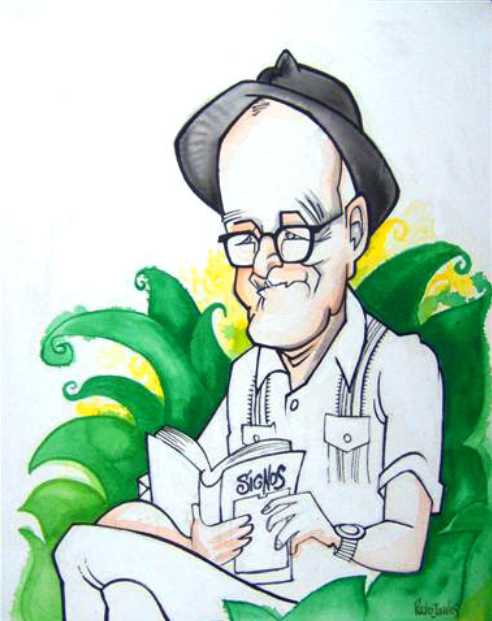4.1.1.22.10 “The Fool’s Bread”, 1978 – 1979, Samuel Feijóo

The collection of poems “El pan del bobo” (The Fool’s Bread) encapsulates the poetic legacy left behind by Samuel Feijóo throughout his life. His ingenuity does not imply ignorance, but rather the poet’s unwavering vision. The lyricism of these pages is not deliberate but emerges from a lived experience in which the poet has discovered himself and his modest mission in the universe, even with the minimum he believes he can contribute, given the immeasurable ocean of the poetic word.
According to Virgilio López Lemus, “in El pan del bobo the author manages to capture, along with his peculiar form of very brief verse, sometimes staggered, with peculiar structures, many of his philosophical, aesthetic and properly poetic points of view, with a high degree of sensitivity and expressive intensity.”
From the beginning of the collection of poems, this conception of the poet against the immeasurable emerges, with the simile of “Bottle in the sea,” which gives title to the first poem and remains as a floating image in other verses.
The fool constitutes something like a repository of ancestral wisdom that comes to him from the memory of the species, bearer of a moving emotional nakedness that is maintained in the vicissitudes of his interrelation with the world, because the bard does not want to wall himself off despite the black heralds, his greatest glory is the love of his neighbor and in this sense, with the overturning of all hierarchy, his neighbor can be an ant, a butterfly…
A tenderness on the surface transpires in these verses, especially in the face of helplessness, that tremor of destiny usurped or that which could be usurped by any external power makes him identify with, assume the being of animals, and these populate his pages in texts with a sometimes certain fabled tone, which have numerous bases in our lyrical tradition.
There’s a certain irony in calling “foolishness” a profound sentiment, at the same time solidly based on ethics, from which the poet feels in his lyrical flesh all the violence and all the caress that looms over creation. In this sense, for Feijóo, creation is transcendent per se, where each element and each creature bears, to a similar degree, the divine, an ideal of deep pantheism.
Of simple wisdom and a synthesis of Feijóo’s lyrical thought, the poem “Ser” is a reflection, with which this section can be concluded:
“Don’t wait.
Sowing: if it rains, it will come
the green one.
All love towards you be your wonder,
and every bread you eat, a feast with one accord.”








